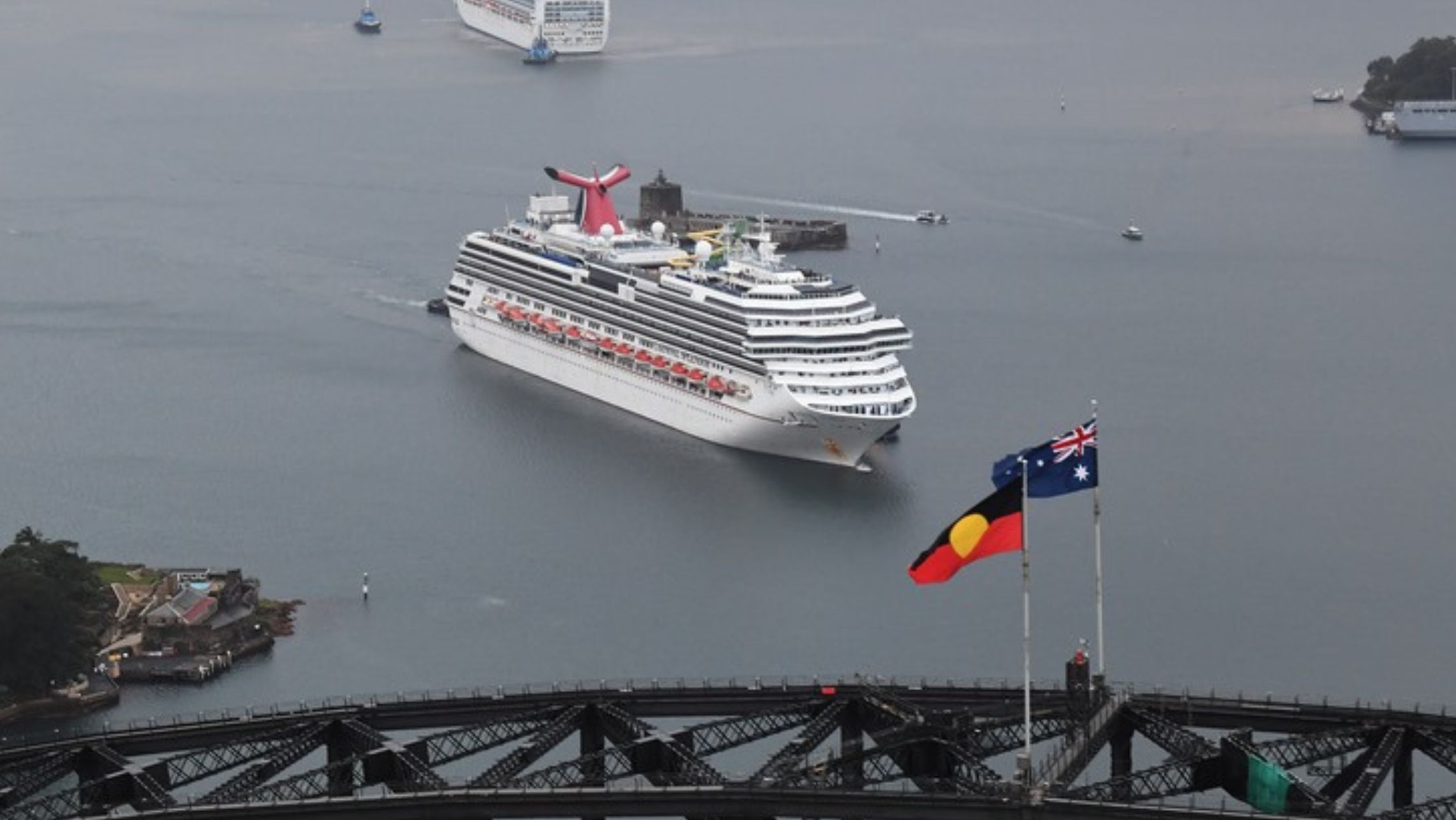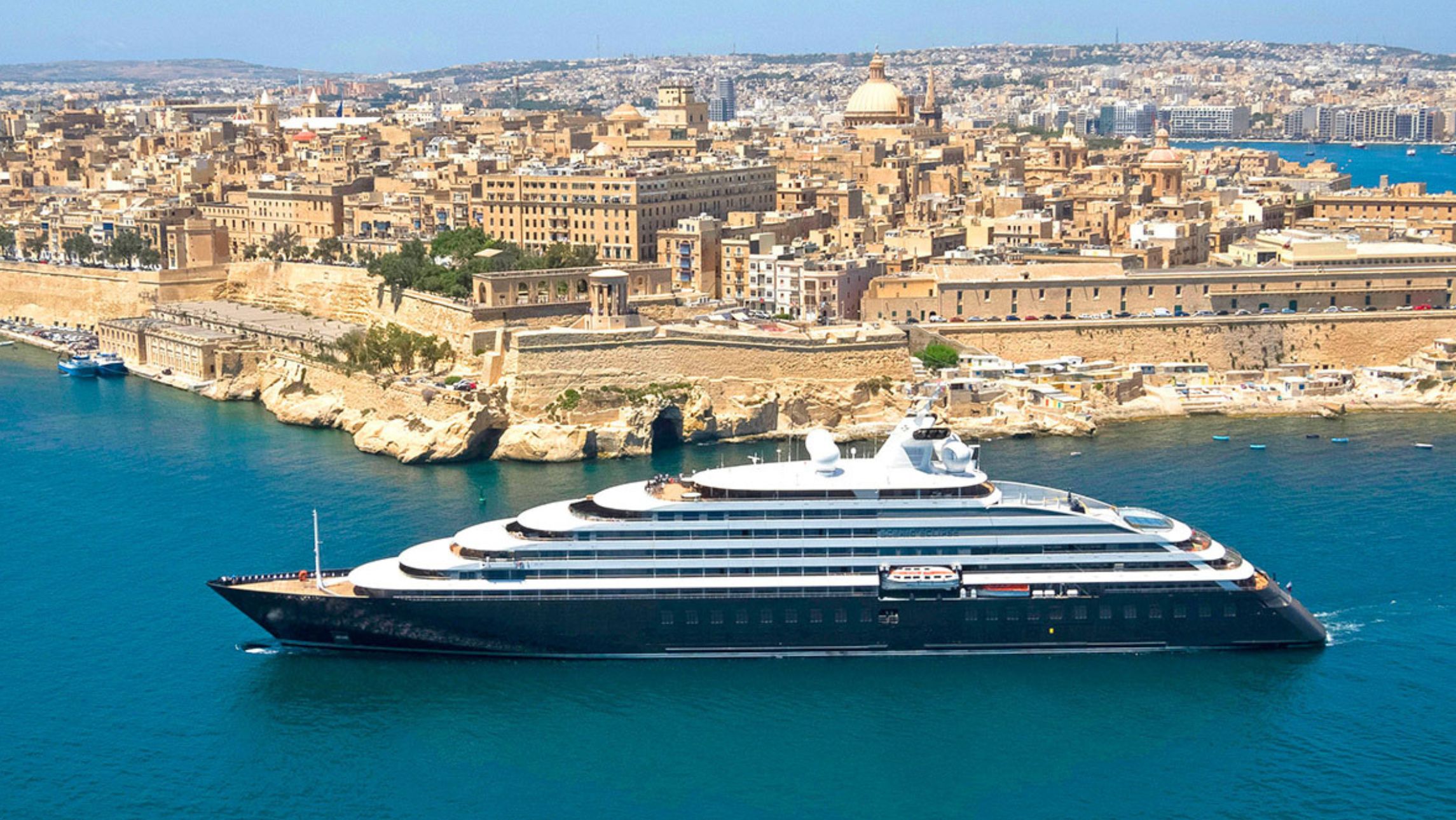Seasoned cruisers will know the ‘washy washy’ song made famous by lines like Royal Caribbean, Carnival Cruise Line and Norwegian Cruise Lines.
As seen in the video below, these enthusiastic staff members at the entrance of the Windjammer Restaurant on Independence of the Seas play a pivotal role in your health and safety. They are, in fact, some of the unsung heroes on cruise ships.
Washing your hands is one step in preventing the thing that can ruin your cruise holiday experience – an outbreak of norovirus.
A report which examined 2,000 cruises in Sydney, found five per cent of ships reported gastro outbreaks.
Carried out between 2007 and 2016, the study revealed norovirus, which is the most common cause of gastro, thrives in environments like cruise ships.
“Norovirus is resistant to freezing, heating and can tolerate commonly used disinfectants, including alcohol and quaternary ammonium compounds better than other viruses,” the report said.
“The combination of these properties allows norovirus to survive in external environments for long periods. The virus often attacks in closed or semi-closed environments such as cruise ships, nursing homes, childcare centres and hospitals.”
Compiled by Microbiology Australia with experts from the University of New South Wales and the South Eastern Sydney Local Health District in Randwick, the study also found a cruise ship will declare a gastro outbreak once two to three per cent of passengers or crew are ill with symptoms. For example, a ship with 2,000 passengers require 40-60 people to fall sick before an outbreak is declared.
Norovirus is transmitted from person-to-person via the faecal oral route where virus particles found in the stool of one person, ends up being swallowed by another.
One of the most significant outbreaks over the last few years, was when the Sea Princess reported 200 cases of gastro caused by norovirus.
Around the world, there are around 2.2 million cases of gastro reported each year and in response, the cruise industry has implemented ways to prevent outbreaks on ships.
The good news is, there is no need to panic. Cruise lines have strict sanitation members and if more than three per cent of the ship’s passengers fall ill, the cruise lines will clean infected cabins, implement more frequent laundering of linen and increase cleaning and disinfection in common areas.
Some of the initiatives the cruise lines have taken is rolling out more dine-in restaurants or staff manning stations in buffet style eateries on ships. Hand sanitisers (and singers) are also placed in public areas around the ship.
Here are some of the facts about norovirus and ways to protect yourself on your 2020 cruise.
What is norovirus?
Norovirus is a group of viruses that can affect the stomach and intestines which then results in gastroenteritis, in inflammation of the stomach and intestines. It can be spread through contaminated food and water or spread through physical contact with surfaces, objects and people. Avoid shaking hands, sharing utensils and not washing your hands with hot water and soap.
What are the symptoms?
The most common symptoms of norovirus include nausea, vomiting, diarrhea and abdominal cramps. You may also get a fever and headache.
What happens if I do get sick on my cruise?
Report to the ship’s medical team immediately so they are happy to help you out. Stay hydrated so drink lots of water. Unfortunately, you may be quarantined to your cabin to prevent the spread of the illness. You will usually recover within 24 to 48 hours but you may be contagious for up to two weeks after you’re infected.
What do cruise lines do to prevent any outbreaks?
Cruise lines often now have manned stations in public areas, especially the dining rooms. They will also have attendants at the entrance asking you to use the hand sanitizers. Lots of cruise lines also have sinks in the buffet area where you can wash your hands with hot water and soap. Salt and pepper shakers also have seemed to disappear off tables. Medical officers are also required to take note of any people who are infected. In some serious cases, some cruise lines may be pulled into dock for a more thorough sanitisation.
How do I avoid getting sick?
- Wash your hands: This prevents you from getting sick as well spreading the virus to other people. What usually works is 20 seconds of scrubbing. Also use the hand sanitisers on top of washing your hands.
- Avoid the buffet: This is one of the places where norovirus can easily spread. But try and be first if you decide to go. Most lines turn over food quickly but just in case – dishes that have been sitting out for a while can be a breeding ground for bacteria.
- Don’t touch public things: Avoid touching balcony railings, door handles, surfaces and especially the bathroom doors. Lots of cruise lines now leave the doors open or have attendants cleaning the surfaces. Otherwise, use a piece of tissue paper to open the door.
- Stateroom cleanliness: Wash your hands as soon as you get into your cabin. You don’t want to spread anything in your stateroom.










As your article says, alcohol based products are not effective against Noro.
So promoting the use of sanitizers may be useless and in fact give passengers a false sense of security.
Properly and frequent washing of hands with soap and warm water is the only sure way to assist in the spread of Noro.
Cheers
been on sun princess,,washing of hands ,is not controlled,,passengers walk thru the hand basins ,and dont use antibacterial..,,staff don’t care,,….planning a trip .do not go school holiday breaks,,,kids take over the pool,,run amok,parents too busy with drink package,,pressing all buttons in lifts ,throwing stuff down stairways,,big game.. A musician had to stop playing piano as 3 sm children screaming and running amok,after 11 pm ,called parents to get kids and take control,,which they ignored.,,I f you had a cabin issue or questions….guest service staff were very rude and not helpful,,have done many trips,,but seriously,not travelling princess again,,
My husband pays for all cruises with a NAB credit card with insurance as part of his account. He has checked and checked to make sure we are covered if the worst happens and we have to be evacuated, the ‘covered’ section says for evacuation from cruise ships so we hope that is not tested.
Re Norovirus
I am concerned that many passengers do not wash or use hand disinfectants when entering the buffet and the staff will not challenge those who do not, as they are generally low ranking staff who are intimidated by passengers. Princess does not have staff on the entrance to its buffet using hand disinfectants, it does have hand washing facilities but no one supervises it, so pointless. WE did see on a RC cruise very enthusiastic staff making sure passengers did use the hand sanitisers.
I use antibacterial wipes the minute i enter my cabin, clean all door knobs, tv remote controls and anything else which may not have been cleaned.